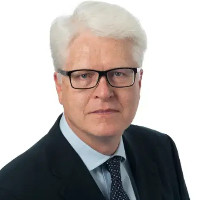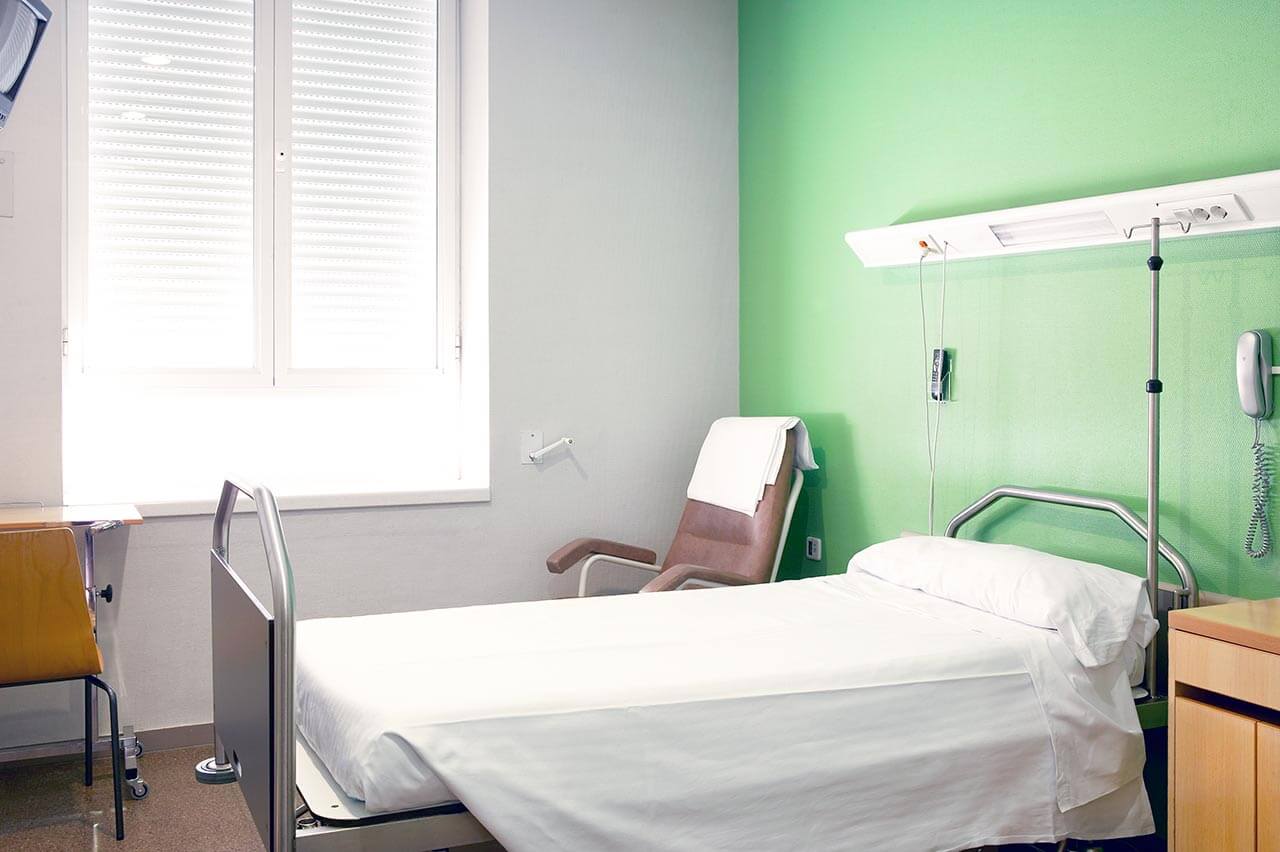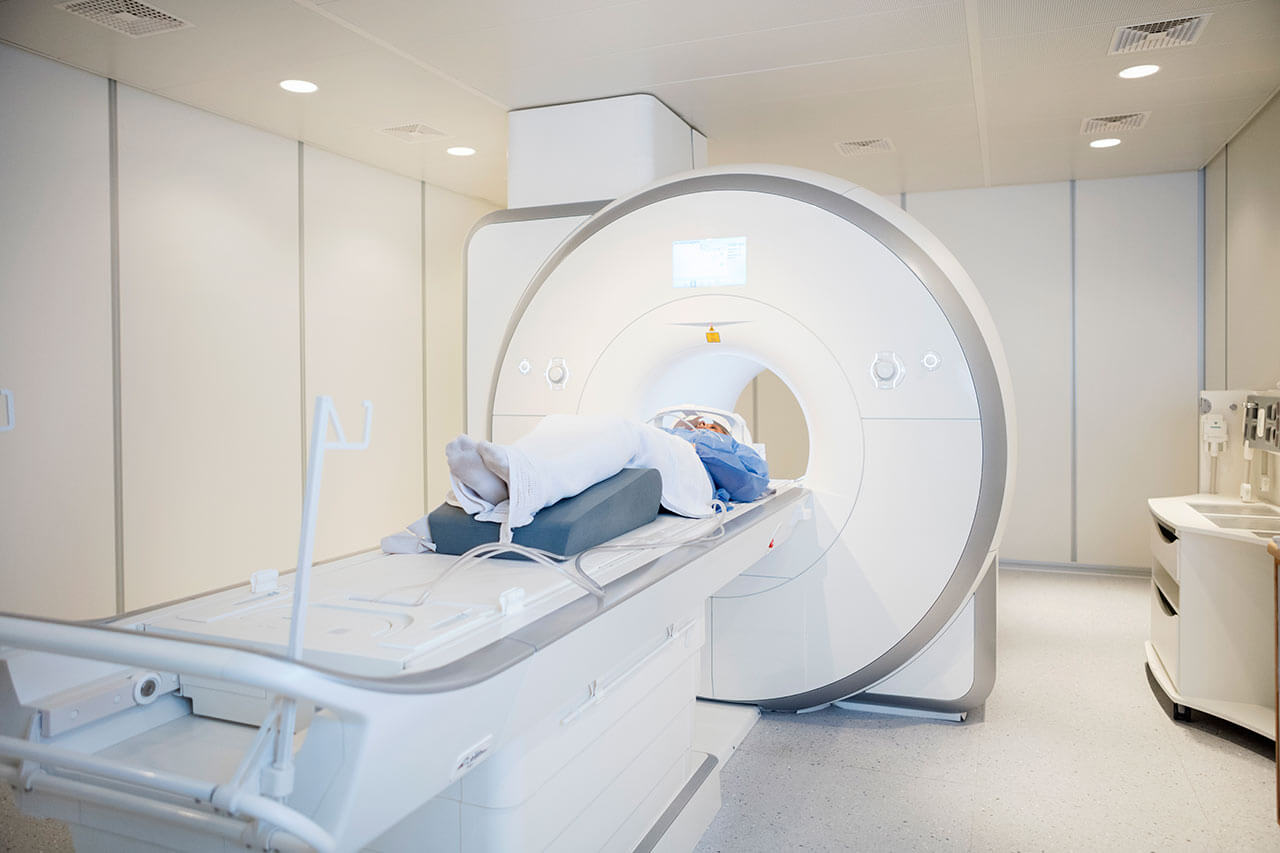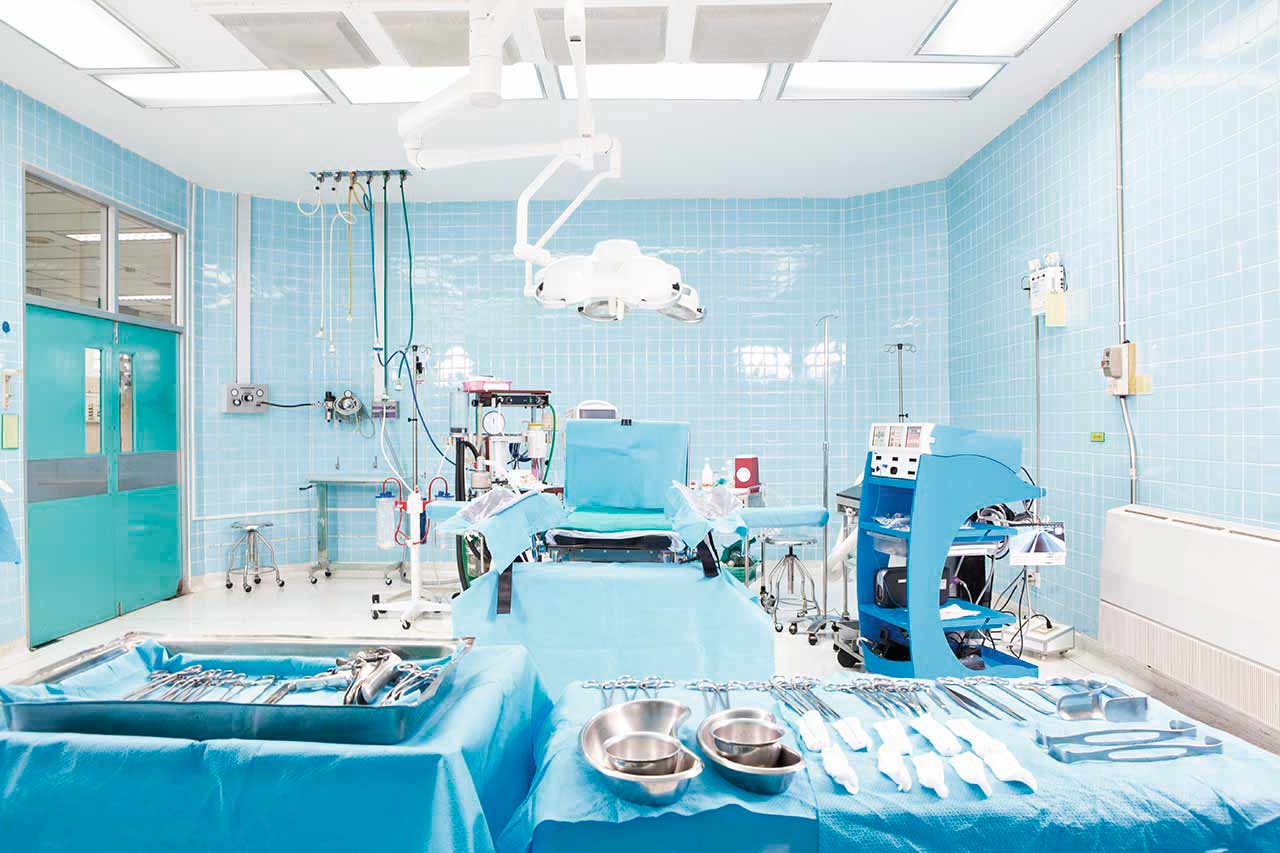
The program includes:
- Initial presentation in the clinic
- clinical history taking
- physical examination
- review of medical records
- laboratory tests:
- complete blood count
- general urine analysis
- biochemical analysis of blood
- TSH-basal, fT3, fT4
- tumor markers
- indicators of inflammation
- indicators of blood coagulation
- CT scan / MRI of the abdomen and chest
- ultrasound / X-ray examination
- conducting 1 course of chemotherapy
- symptomatic treatment
- the cost of essential medicines and materials
- nursing services
- control examinations
- explanation of future recommendations
How program is carried out
During the first visit, the doctor will conduct a clinical examination and go through the results of previous laboratory tests and instrumental examinations. After that, you will undergo an additional examination, including laboratory assessment of liver and kidney function, ultrasound scan. Based on the received results, the doctor will elaborate the chemotherapy regimen. If necessary, related medical specialists will be involved in the elaboration of a treatment regimen (tumor board).
Chemotherapy is carried out as the day hospital procedure, without mandatory admission to the hospital. After the placement of a venous catheter, you will stay in a comfortable ward. An infusion system will be connected to the catheter, through which the required drug or a drug combination will be administered. All drugs are administered by intravenous drip, slowly, so the total duration of the infusion can be up to several hours. All this time, doctors and nurses will monitor your health condition closely.
After the course of chemotherapy, you will stay under medical supervision in the ward for a few more hours. If your general condition is good, your doctor will allow you to leave the hospital. You will receive the medical report with detailed recommendations regarding further treatment. In the future, you will be able to have a distant consultation with your attending physician and schedule the next course of chemotherapy, if necessary.
Required documents
- Medical records
- MRI/CT scan (not older than 3 months)
- Biopsy results (if available)
Service
You may also book:
 BookingHealth Price from:
BookingHealth Price from:
About the department
The Comprehensive Cancer Center Munich (CCC Munich) at the University Hospital of Ludwig Maximilian University of Munich is one of the most reputable cancer centers in Germany and throughout Europe, where patients with malignant diseases undergo comprehensive diagnostics and effective treatment based on the very latest medical advances. The center has 3,500 beds to accommodate patients. The medical facility is certified in accordance with the DIN EN ISO standards and requirements of the German Cancer Society, and also works with the assistance of the German Cancer Aid (Deutsche Krebshilfe). The CCC Munich unites many specialized centers, each of which is responsible for treating a particular group of cancers, thanks to which patients receive interdisciplinary medical care, and there is always the opportunity to involve doctors from related disciplines in the therapeutic process. The best German specialists are at the patients' disposal, with excellent technical resources and working together to overcome oncology and give patients the opportunity to live a full life. Great importance is attached to the psychological support of patients aimed at combating depressive states. The center is headed by Prof. Dr. med. Volker Heinemann.
Breast cancer is the most common type of oncology in women. The first-line therapy is usually a surgical resection of the malignant tumor. Depending on the stage of the oncological process, surgeons perform breast-conserving and radical interventions. First of all, the possibility of breast-conserving surgery is considered, and a radical intervention is the last-line option. The specialists working at the center are rightfully proud of their professional skills, so patients can be sure that the operation will be performed as best as possible. After a mastectomy (breast removal), a woman is offered modern plastic surgery to restore the appearance of her breast, in particular, breast reconstruction with silicone implants and DIEP flap reconstructive plastic surgery. Surgical treatment is complemented by conservative methods such as chemotherapy, hormone therapy, targeted therapy, antibody therapy, or immunotherapy. Physicians work with radiation therapists to determine the best type of radiation therapy (if clinically indicated): intraoperative radiation, deep inspiration breath hold (DIBH), irradiation with the Catalyst™ non-contact monitoring system for left-sided cancer to protect the heart, brachytherapy for liver metastases, and stereotactic radiosurgery for brain and lung metastases caused by breast cancer.
Of particular interest to the center's doctors is the treatment of colon cancer, which is one of the three most lethal types of oncology. In the treatment of this oncological disease, the center has been awarded the quality certificate from the German Cancer Society (DKG) and also has the status of the Center of Excellence for Colon Cancer, certified in accordance with the standards of the German Society for General and Visceral Surgery (DGAV). A team of colon cancer specialists provides all modern treatment options for this complex type of cancer. In most cases, it is impossible to do without the surgical removal of the malignant tumor and the adjacent affected tissues. Depending on the stage of the oncological process, the surgeons at the center perform both sparing laparoscopic and classical open interventions. In some cases, doctors can perform robot-assisted surgery using the da Vinci surgical system. The operation usually does not guarantee the total destruction of all malignant cells in the patient's body, so doctors additionally use various types of conservative therapy: chemotherapy, including in combination with hyperthermia, antibody therapy, radiation therapy, chemoradiotherapy, etc. Since colon cancer is most often diagnosed at its advanced stages, patients often have liver metastases. The specialists use radiofrequency ablation, selective internal radiation therapy, intra-arterial chemotherapy, or interstitial brachytherapy to suppress them.
The Comprehensive Cancer Center Munich holds a leading position in the medical arena in Germany and Europe in oncology and therefore provides medical care to patients with all types of cancer known in modern medicine, including malignant tumors of the reproductive system in men and women, kidneys, bladder, central and peripheral nervous systems, gastrointestinal organs, endocrine glands, and lungs, as well as patients with bone and soft tissue sarcomas, leukemias, and lymphomas. The center is also one of the few in Germany with vast experience in the diagnostics and treatment of patients with cancer of unknown primary and rare types of malignant tumors. Each clinical case of oncology is unique, so the center's specialists always take a responsible approach to prescribing certain types of therapy, assessing their benefits and side effects. In addition to the main treatment, qualified psycho-oncologists work with patients.
The center also regularly treats children with cancers, so there is a specially trained team for the management of young patients, and tremendous clinical experience has been accumulated in the field of cancer treatment in children. Therapeutic options are almost the same as those used in the treatment of adults and most often include surgery, chemotherapy, and/or radiation therapy. Art therapists, music therapists, physiotherapists, psychologists, and other specialists work with children to facilitate the therapeutic process, which is usually quite exhausting for a child. Doctors always strive to elaborate the most effective treatment regimen, while it is important for them to ensure the proper development of the child's body upon the completion of therapy.
The center specializes in the diagnostics and treatment of the following cancers:
- Breast cancer
- Gynecologic cancers
- Uterine cancer
- Cervical cancer
- Ovarian cancer
- Endometrial cancer
- Vaginal cancer
- Vulvar cancer
- Male reproductive cancers
- Prostate cancer
- Penile cancer
- Testicular cancer
- Urinary tract cancers
- Kidney cancer
- Bladder cancer
- Ureteral cancer
- Gastrointestinal cancers
- Colon cancer
- Stomach cancer
- Colorectal cancer
- Pancreatic cancer
- Liver cancer and liver metastases
- Gallbladder and bile duct cancers
- Endocrine cancers
- Thyroid cancer
- Parathyroid cancer
- Adrenal cancer
- Pituitary cancer
- Neuroendocrine tumors
- Bone and soft tissue cancer (sarcomas)
- Malignant head and neck tumors
- ENT cancers
- Nasal cavity and paranasal sinus cancers
- Oral cavity and oral mucosal cancers
- Throat cancer
- Laryngeal cancer
- Salivary gland cancer
- Head and neck skin cancer
- Oral and maxillofacial cancers
- Lower and upper jaw cancers
- Lip cancer
- Tongue cancer
- ENT cancers
- Thoracic cancers
- Lung cancer
- Pleural cancer
- Tracheal cancer
- Mediastinal cancers
- Brain and spinal cord cancers
- Malignant blood diseases
- Leukemia
- Myeloproliferative syndrome
- Multiple myeloma
- Childhood cancers
- Leukemias
- Lymphomas
- Sarcomas
- Brain and spinal cord tumors
- Kidney cancer
- Liver cancer
- Retinoblastoma
- Other malignant diseases
The therapeutic options offered at the center are as follows:
- Surgical treatment
- Minimally invasive surgery
- da Vinci robotic surgery
- Laser interventions
- Endoscopic interventions
- Open surgery
- Conservative treatment
- Chemotherapy
- Radiation therapy, including innovative stereotactic radiosurgery
- Hormone therapy
- Antibody therapy
- Immunotherapy
- Targeted therapy
- Photodynamic therapy
- Radiofrequency and laser ablation
- Bone marrow transplant
- Other methods of surgical and conservative treatment
Curriculum vitae
Higher Education and Professional Career
- 1976 - 1982 Human Medicine studies, Ludwig Maximilian University of Munich.
- 27.01.1983 Admission to medical practice, Bavaria.
- 1984 - 1985 Assistant Physician, Department of Oncology and Hematology at the University Hospital of Ludwig Maximilian University of Munich.
- 1985 - 1988 Postdoctoral Fellow, University of Texas MD Anderson Cancer Center, Department of Molecular Pharmacology and Department of Clinical Oncology, Biochemistry and Clinical Pharmacology training.
- 1988 - 1998 Assistant Physician, Department of Oncology and Hematology at the University Hospital of Ludwig Maximilian University of Munich.
- 1996 Board certification in Internal Medicine.
- 1996 Habilitation, Ludwig Maximilian University of Munich.
- 1997 Specialization in Oncology and Hematology.
- 2005 Exam, European Society for Medical Oncology (ESMO).
- Since 2005 Head of the Day Hospital (Oncology) at the University Hospital of Ludwig Maximilian University of Munich.
- Since 03.2010 Appointed as Director of the Comprehensive Cancer Center Munich.
Scientific and Social Activities
- Leader of the Working Group on Internal Oncology.
- Leader of the Working Group on Oncology, Department of Oncology and Hematology at the University Hospital of Ludwig Maximilian University of Munich.
- Leader of the Working Group on Pancreatic Cancer, AIO.
- Executive Member of the Working Group on Colorectal Cancer, AIO.
- Board Member of the Tumor Center Munich (TZM).
- Board Member of the Project Group on Gastrointestinal Tumors at the Tumor Center Munich (TZM).
- Principal Researcher in the German Consortium for Translational Oncology (DKTK).
- Editor of the Section for Oncological Gastroenterology in the European Journal of Cancer (EJC).
Prizes, Awards and Distinctions
- 2013 Prize from The German Cancer Aid.
Memberships in Professional Societies
- American Society of Clinical Oncology (ASCO).
- German Cancer Society (DKG).
- German Society for Hematology and Oncology (DGHO).
- Working Group on Internal Oncology (AIO).
- German Society for Senology.
- European Organization for Research and Treatment of Cancer (EORTC).
Photo of the doctor: (c) LMU Klinikum
About hospital
According to the Focus magazine, the University Hospital of Ludwig Maximilian University of Munich is regularly ranked among the best medical institutions in Germany!
The hospital is the largest multidisciplinary medical facility, as well as a leading research and training center in Germany and Europe. The hospital is proud of its bicentenary history and tirelessly confirms its primacy at the national and international levels. The outstanding quality of medical care is complemented by highly productive research activities, thanks to which many effective diagnostic and therapeutic methods, saving people’s lives, have been presented in medical practice.
The medical facility includes two main buildings, Grosshadern and Innenstadt. The hospital has 29 specialized departments, 53 interdisciplinary centers, 11 institutes, and many sections. More than 500,000 patients are treated here every year, which indicates the hospital's excellent reputation. A large and highly professional medical team, consisting of 1,800 doctors and 3,300 nursing staff, works for the benefit of patients. The hospital has 2,000 beds to accommodate patients.
The hospital's infrastructure deserves special attention: advanced diagnostic equipment that allows doctors to detect the slightest pathological changes in the human body, the latest operating rooms with highly efficient monitoring systems, robot-assisted surgical systems that facilitate sparing operations, and proper postoperative care.
Excellent technical resources and highly professional medical staff are undoubtedly the hospital's pride, but the medical facility also pays attention to the patient's comfort and to a humane attitude toward their life situation. When providing the necessary medical care, doctors and nursing staff always show a friendly attitude, inform patients in detail about the upcoming diagnostic and therapeutic procedures, gladly answer all questions of interest to patients, and provide moral support during the therapeutic process.
The hospital has many prestigious quality certificates, including a DIN EN ISO 9001 certificate, an IQM certificate, an endoCert certificate, certificates from the German Cancer Society (DKG) for treating various types of cancer, the German Cardiac Society (DGK), the German Society for Orthopedics and Trauma Surgery (DGOU), etc. Thus, patients can count on the best possible treatment outcome due to the use of the most effective and, at the same time, sparing therapeutic techniques.
Photo: (с) depositphotos
Accommodation in hospital
Patients rooms
The patients of the University Hospital of Ludwig Maximilian University of Munich live in comfortable, spacious, single and double patient rooms with a modern design. Each room is equipped with an ensuite bathroom with a shower and toilet. The furnishing of a standard patient room includes a comfortable bed, the position of which can be adjusted using the remote control, a locker for storing personal belongings, a TV, and a telephone. Also, if desired, you can connect to the Internet. In addition, patients can opt for enhanced-comfort rooms, with a safe, a fridge, and upholstered furniture.
The hospital has an excellent infrastructure. The medical facility’s area houses a bank, ATMs, a hairdresser, shops with a wide range of food, drinks, newspapers, magazines, and personal hygiene items, play areas for children, and a beautiful garden for walking, etc.
Meals and Menus
The patient and his accompanying person are offered a daily choice of three menus, including a vegetarian one. If you are on a specific diet for any reason, you will be offered an individual menu. Please inform the medical staff about your dietary preferences prior to the treatment.
Further details
Standard rooms include:
Religion
Religious services are available upon request.
Accompanying person
Your accompanying person may stay with you in your room or at a hotel of your choice during the fixed program.
Hotel
You may stay at a hotel of your choice during an outpatient program. Our managers will help you to choose the best option.
The hospital offers a full range of laboratory tests (general, hormonal, tests for infections, antibodies, tumor markers, etc.), genetic tests, various modifications of ultrasound scans, CT scans, MRI and PET/CT, angiography, myelography, biopsies, and other examinations. Treatment with medications, endoscopic and robotic operations, and stereotaxic interventions are carried out here, modern types of radiation therapy are also used. The hospital offers patients all the necessary therapeutic techniques.
- Allogeneic bone marrow transplantation
- Microsurgical transplantation of head and neck tissues
- Microsurgical resection of brain tumors with intraoperative fluorescence
- Minimally invasive treatment of spine pathologies
- Joint replacement with postoperative rehabilitation (fast track program)
Patients with benign and malignant neoplasms of various localizations, pathologies of arteries and veins, herniated discs, osteoporosis, congenital and acquired pathologies of the musculoskeletal system, benign and malignant pathologies of the mammary gland, and other pathologies.
Which specialties of the University Hospital of Ludwig Maximilian University of Munich are the best?
- Interventional and diagnostic neuroradiology
- Vascular surgery
- Cardiac surgery
- Mammalogy
- Gastroenterology and hepatology
Over 1,700 highly qualified doctors work at the hospital.





